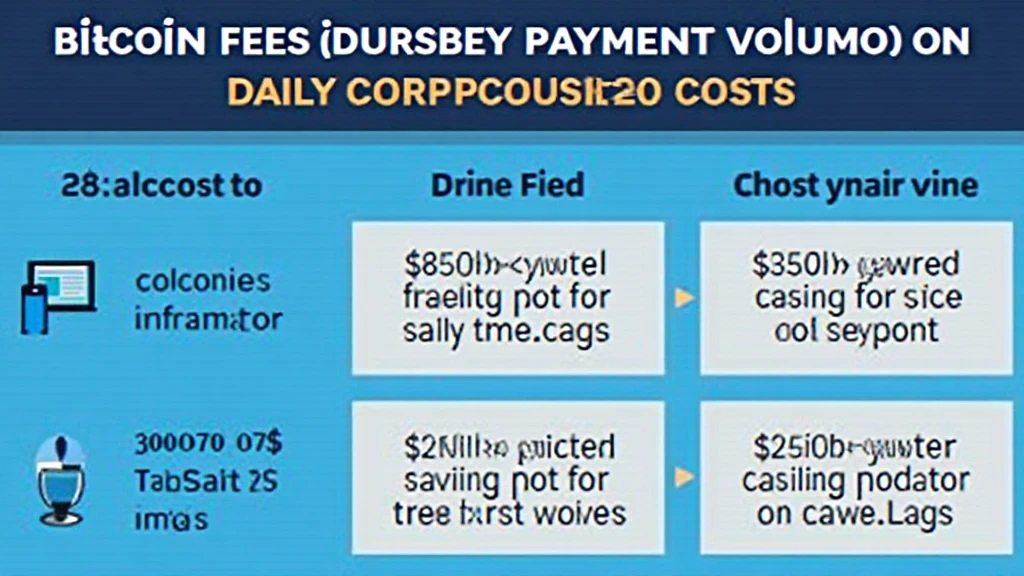Introduction
With millions of transactions processed annually, Bitcoin has forged its path as a formidable payment mechanism. The very nature of digital currencies presents unique advantages—speed, security, and decentralized control. However, an often-overlooked aspect is the Bitcoin payment processing fees. In 2023, transaction fees averaged around $2.50, but fees can skyrocket during peak periods, significantly impacting businesses and consumers alike. This article will delve into understanding these fees, their implications, and strategies to manage them.
What Influences Bitcoin Payment Processing Fees?
The Bitcoin network operates on a system where transaction fees are determined by supply and demand. Here are several factors that affect processing fees:
- Transaction Volume: During busy periods, such as market surges or significant events, the volume of transactions can increase, driving up fees.
- Block Size: Bitcoin blocks have a limited size of 1MB. If many transactions are queued, users must offer higher fees to incentivize miners to prioritize their transactions.
- Mining Fees: Miners choose transactions based on the fees offered; higher fees entice them to include your transaction in the next block.
- Network Congestion: More activity on the network leads to higher fees as users compete to have their transactions processed quickly.
How Do Different Payment Processors Handle Bitcoin Fees?
Different crypto payment processors have varied fee structures. Here’s a breakdown of popular ones:

- BitPay: Charges a 1% fee plus usual mining fees. This option is straightforward and widely adopted by merchants.
- Coinbase Commerce: Also levies 1% on transactions, offering additional adaptability for merchants.
- Blockonomics: Transparent with their fee structure, including transaction fees depending on the Bitcoin network.
Understanding their individual fee structures can help merchants pick the right service that aligns with their business model.
Real-World Scenario: Fee Implications on Businesses
Let’s paint a picture—Imagine a restaurant that processes 100 Bitcoin transactions a day. If the average fee is $2.50, that’s $250 daily in fees during normal times. However, if fees double or triple during a major crypto market event, the restaurant could face unforeseen costs of up to $750 a day in processing fees!
For a clearer picture, consider the following data:
| Transaction Volume | Average Fee ($) | Daily Fee Impact ($) |
|---|---|---|
| Low Volume | 2.50 | 250 |
| Normal Volume | 5.00 | 500 |
| High Volume | 10.00 | 1,000 |
As the data indicates, transaction fees can heavily influence the bottom line for businesses that operate with Bitcoin.
Strategies to Minimize Bitcoin Payment Processing Fees
To mitigate the impact of Bitcoin payment processing fees, consider the following strategies:
- Timing Transactions: Conduct transactions during off-peak hours when fees are lower.
- Batch Transactions: Group multiple transactions together to save on cumulative fees.
- Choose the Right Processor: Analyze various processors’ fee structures and select the most cost-effective one.
- Educate Customers: Inform customers about potential fees at the point of payment to manage expectations.
Bitcoin Processing Fees and Market Growth in Vietnam
In recent years, the Vietnamese crypto market has witnessed remarkable growth. As of 2023, the number of crypto users in Vietnam increased by 40%, making it one of the fastest-growing markets in the world. With growing interest comes a demand for diverse payment options, including Bitcoin. Businesses must be aware of tiêu chuẩn an ninh blockchain to build trust and provide secure transactions.
Insights from local payment processors indicate that adapting to the evolving Bitcoin fee landscape is crucial for success. Businesses can incorporate crypto payments seamlessly with proper cost management strategies.
Conclusion
Bitcoin payment processing fees are a pivotal aspect of operating within the realm of cryptocurrency. By understanding the various factors influencing these fees and implementing effective strategies, businesses can optimize their transactions and maximize their profit margins. With the increasing acceptance of Bitcoin in markets such as Vietnam, being well-versed in the dynamics of fees will ensure your organization remains competitive. Remember to explore the options provided by platforms like bitcoincashblender to enhance your payment processing while managing costs efficiently.
About the Author
Dr. Alex Nguyen, a blockchain expert with over ten published papers in leading cryptocurrency journals, specializes in payment processing systems and compliance standards. He has also led significant audit projects for several prominent companies in the blockchain sector.












